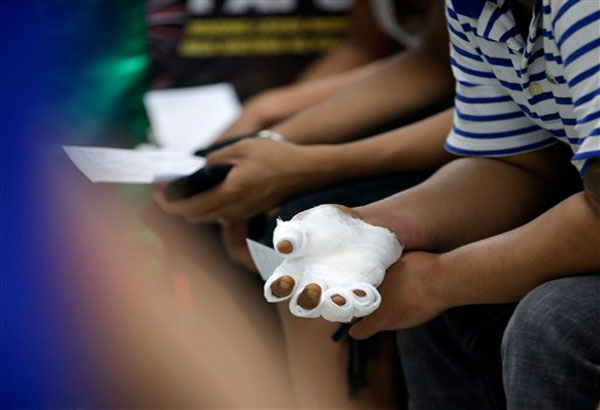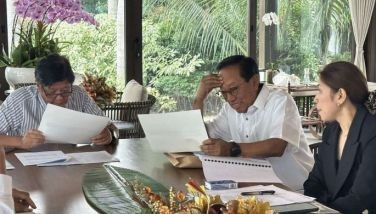Probe set on SC loan misuse
MANILA, Philippines - The House of Representatives will conduct its own inquiry into alleged irregularities in the Supreme Court’s use of a $21.9-million loan from the World Bank.
Majority Leader Neptali Gonzales II said at least two resolutions calling for the inquiry would be included in the order of business for this week.
“We will refer these to the committee on good government, which we will ask to start the inquiry as soon as possible,” he said.
Eastern Samar Rep. Ben Evardone filed the first resolution, while Bayan Muna Representatives Teddy Casiño and Neri Colmenares authored the second.
Sen. Franklin Drilon, who chairs the Senate finance committee, also wanted a Senate inquiry, but shelved his proposal in view of the impeachment trial of Chief Justice Renato Corona.
Evardone, a former journalist, said the House has to conduct an inquiry since “it is the House that appropriates loan payments in the annual national budget.”
“It has to make sure that there is proper use of loans and should in fact advice or compel borrower-agencies to make rectifications of reported irregularities before allocating loan payments,” he said.
Quoting a World Bank report, Evardone said irregularities “accelerated in 2011” under the leadership of Chief Justice Corona.
A World Bank team, which reviewed the project from October to November 2011, discovered alleged anomalies in the use of the loan. The team met with 19 judiciary officials led by Corona and Associate Justice Teresita Leonardo-de Castro.
The team made known its findings to the Supreme Court in a letter it sent last Dec. 28 to Leonardo-de Castro, who overseas the project.
In its report, the team said the overall “project financial management performance was unsatisfactory and the overall project financial management risk was high.”
“The team, after careful review, declares that expenditures totaling $199,000 were ineligible, and requests the borrower (Supreme Court) to arrange to refund, by Jan. 31, 2012, any un-refunded amounts,” the mission said in its report.
It said the 70 ineligible expenses out of 133 constituted a “high proportion, which reinforces the conclusion that there has been a breakdown in the internal control environment pertaining to the project.”
It found out that 15 of the expenses not covered by the loan agreement “related to the Office of the Court Administrator.”
The disbursements included airfare for local and foreign trips, allowances of the traveling officials, hotel food expenses, and payment of seminar speakers’ fees.
The World Bank team also questioned Corona’s appointment of one man as court administrator, head of the Supreme Court’s public information office and chairman of the bids and awards committee.
It did not however name Midas Marquez as such official. Corona authorized Marquez to approve disbursements of up to P200,000, which was later increased to P500,000.
“This senior official due to the combination of his appointments and functions, was the requestor of services, the approver of the terms of reference, the end-users of services (requested), the authorizer of contract extensions, and the authorizer of payments,” it said.
The team pointed out that the situation presented a conflict of interest and did away with internal checks and balances in disbursements and procurement of supplies.
It noted that computer equipment purchases were done “mostly through shopping procedures, mostly outside of the agreed procurement plan, mostly for units located in Manila, and through individual items/small lots, which militate against procurement economy and efficiency.”
The procurement pattern “appears to have emerged since mid-2010 and accelerated in 2011,” it said.
“The apparent lack of standardization of technical specifications for commonly used IT (information technology) equipment (such as laptops) resulted in significant variations in price. For example, the documents reviewed indicate that unit prices for laptops procured ranged from $782 to $1,027 to $1,525 to $3,252,” the team said.
It discovered that 36 percent of the value of procured IT equipment “was not for front-line judges and court personnel who needed such equipment to expedite disposal of backlogs and cases, but for the Supreme Court in Manila.”
“This proportion rises to 62 percent if one considers that most appellate courts that benefited from such purchases were also located in Manila,” the team said.
It said the Regional Court Administration Office in Lapu-Lapu City in Cebu, which the World Bank proposed as a pilot project for reducing case backlogs, received only six percent of the procured IT equipment.
The project “is now being dismantled since the experiment did not realize the benefits it was expected to deliver. It is not clear what will happen to the equipment - the team was not informed of a plan for the alternate use of these assets,” it said.
- Latest
- Trending
































